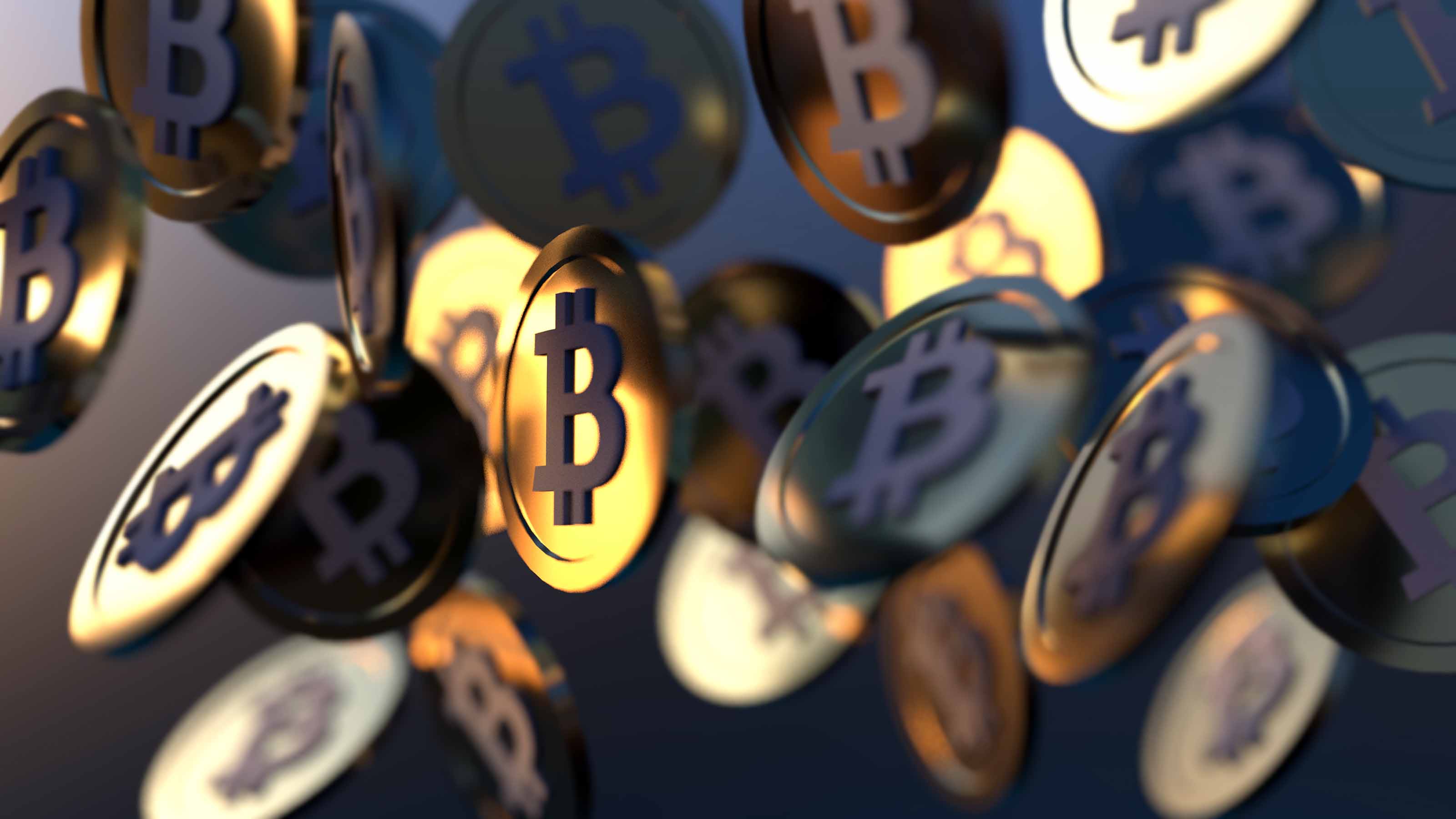Lessons From the Crisis
13 maxims for the times.

Profit and prosper with the best of Kiplinger's advice on investing, taxes, retirement, personal finance and much more. Delivered daily. Enter your email in the box and click Sign Me Up.
You are now subscribed
Your newsletter sign-up was successful
Want to add more newsletters?

Delivered daily
Kiplinger Today
Profit and prosper with the best of Kiplinger's advice on investing, taxes, retirement, personal finance and much more delivered daily. Smart money moves start here.

Sent five days a week
Kiplinger A Step Ahead
Get practical help to make better financial decisions in your everyday life, from spending to savings on top deals.

Delivered daily
Kiplinger Closing Bell
Get today's biggest financial and investing headlines delivered to your inbox every day the U.S. stock market is open.

Sent twice a week
Kiplinger Adviser Intel
Financial pros across the country share best practices and fresh tactics to preserve and grow your wealth.

Delivered weekly
Kiplinger Tax Tips
Trim your federal and state tax bills with practical tax-planning and tax-cutting strategies.

Sent twice a week
Kiplinger Retirement Tips
Your twice-a-week guide to planning and enjoying a financially secure and richly rewarding retirement

Sent bimonthly.
Kiplinger Adviser Angle
Insights for advisers, wealth managers and other financial professionals.

Sent twice a week
Kiplinger Investing Weekly
Your twice-a-week roundup of promising stocks, funds, companies and industries you should consider, ones you should avoid, and why.

Sent weekly for six weeks
Kiplinger Invest for Retirement
Your step-by-step six-part series on how to invest for retirement, from devising a successful strategy to exactly which investments to choose.
As the U.S. slowly pulls out of a brutal two-year slump, it's time to reflect on what we have learned
Debt can be deadly. Leverage (the fancy word for debt) magnifies gains in rising markets—and magnifies losses when prices crash. Credit is a valuable tool, but it must be used sparingly.
Cash is king. Those with liquidity can scoop up bargain assets in falling markets. But money tied up in illiquid assets—including real estate partnerships, hedge funds and private-equity pools—can't be retrieved on short notice and must often be shored up by cash calls.
From just $107.88 $24.99 for Kiplinger Personal Finance
Become a smarter, better informed investor. Subscribe from just $107.88 $24.99, plus get up to 4 Special Issues

Sign up for Kiplinger’s Free Newsletters
Profit and prosper with the best of expert advice on investing, taxes, retirement, personal finance and more - straight to your e-mail.
Profit and prosper with the best of expert advice - straight to your e-mail.
Easy credit helps no one. Overmarketing credit cards and mortgages to marginal borrowers does them no favor, and their debt is not a safe asset for anyone to own. Plus, cheap money encourages companies to overpay for acquisitions.
When others panic, buy. Just as during every financial crisis in world history, the market swoon from late 2008 through early 2009, with a 43% drop in the Dow, was a great time to load up on quality stocks to hold for a long time.
Forget about "decoupling." The idea that high-growth developing economies—and their stock markets—would be immune to severe recessions in Western nations turned out to be a myth.
Governments should anticipate recessions. During boom times, they should stockpile revenues in rainy-day funds as a hedge against lower tax receipts and expanded social needs ahead. When surpluses are set aside, they smooth out government spending and avoid the pain of public-employee layoffs and cuts in vital programs.
Free markets need oversight. A pro football or basketball game without sensible rules and tough referees would quickly deteriorate into bedlam. So would financial markets. But a whistle-happy ref can also spoil the game. Effective oversight finds a balance between safety and innovation. High compensation breeds risky behavior. It's time for shareholders—among them Uncle Sam—to rein in excessive rewards for short-term results.
Complexity breeds chaos. Exotic financial instruments designed to dampen risk often have the opposite effect, especially when oversold to uncomprehending managers of pension funds, endowments and mutual funds. Investors: If you don't understand it, don't buy it. Regulators: If a new kind of asset has no good reason to exist, have the guts to just say no.
Securitizing doesn't change risk. Slicing an asset into small pieces just spreads the prospective gains and losses over more owners.
"Too big to fail" must entail consequences. As a price for being allowed to become gigantic, financial firms must be subject to more government oversight, such as higher capital reserves, higher deposit-insurance fees and more scrutiny of their operations.
Home is shelter, not an investment. Home prices can and do rise and fall, like all other assets. Don't expect appreciation in the value of your home to be a substitute for retirement savings in traditional investments.
Washington grows by default. For good and for ill, the federal government always expands its spending and authority in times of crisis—by popular demand. And it takes years to pay down the debt and assess the wisdom of new controls.
Living beyond our means is over. The U.S. is dangerously dependent on foreign creditors because of excessive borrowing by Washington, excessive consumption of imports (primarily petroleum) and a personal savings rate that has been near zero (rising recently to 5%, but still too low). Foreign lenders won't cease funding our deficits, but they will demand higher interest rates to do so.
These are some of the painful lessons we've learned. But will we remember them when the crisis is past?
Columnist Knight Kiplinger is editor in chief of Kiplinger's Personal Finance, The Kiplinger Letter and Kiplinger.com.
Profit and prosper with the best of Kiplinger's advice on investing, taxes, retirement, personal finance and much more. Delivered daily. Enter your email in the box and click Sign Me Up.

Knight came to Kiplinger in 1983, after 13 years in daily newspaper journalism, the last six as Washington bureau chief of the Ottaway Newspapers division of Dow Jones. A frequent speaker before business audiences, he has appeared on NPR, CNN, Fox and CNBC, among other networks. Knight contributes to the weekly Kiplinger Letter.
-
 Nasdaq Leads a Rocky Risk-On Rally: Stock Market Today
Nasdaq Leads a Rocky Risk-On Rally: Stock Market TodayAnother worrying bout of late-session weakness couldn't take down the main equity indexes on Wednesday.
-
 Quiz: Do You Know How to Avoid the "Medigap Trap?"
Quiz: Do You Know How to Avoid the "Medigap Trap?"Quiz Test your basic knowledge of the "Medigap Trap" in our quick quiz.
-
 5 Top Tax-Efficient Mutual Funds for Smarter Investing
5 Top Tax-Efficient Mutual Funds for Smarter InvestingMutual funds are many things, but "tax-friendly" usually isn't one of them. These are the exceptions.
-
 New Ways to Invest in Bitcoin
New Ways to Invest in BitcoinBecoming an Investor ProShares Bitcoin Strategy and other ETFs offer an easier way to gain bitcoin exposure than buying the actual cryptocurrency.
-
 How to Cash In on Sports Gambling
How to Cash In on Sports GamblingBecoming an Investor Some 27 states have launched sports-betting markets, 11 of them online. Another five have passed laws to do so.
-
 3 New-Investor Myths That Need Busting
3 New-Investor Myths That Need BustingBecoming an Investor Preconceived notions that new investors are uninformed risk-takers are misguided. Forget games and cynicism; they need support and guidance.
-
 Namaste Invested: Look to Yoga to Build Your Wealth
Namaste Invested: Look to Yoga to Build Your WealthInvestor Psychology It’s uncanny how the principles of yoga apply to financial success. Here are five elements of yoga that are particularly useful for personal wealth.
-
 These 2 Emotional Biases Could Kill Your Retirement
These 2 Emotional Biases Could Kill Your RetirementInvestor Psychology Are your emotions sabotaging your retirement plans? Some basic knowledge and careful introspection can go a long way toward avoiding deadly pitfalls.
-
 Should Investors Brace for Late-Summer Volatility?
Should Investors Brace for Late-Summer Volatility?investing Many market strategists are predicting a shaky next few months of market action. Here's how to mentally steel yourself.
-
 I Still Like the Trillion-Dollar Stocks
I Still Like the Trillion-Dollar StocksBecoming an Investor Unlike the highfliers of the late 1990s, these trillionaires make tons of money.
-
 The Psychology Behind Your Worst Investment Decisions
The Psychology Behind Your Worst Investment Decisionsinvesting We can torpedo our portfolios without even realizing it. Avoiding these seven traps will allow you to make rational investments.